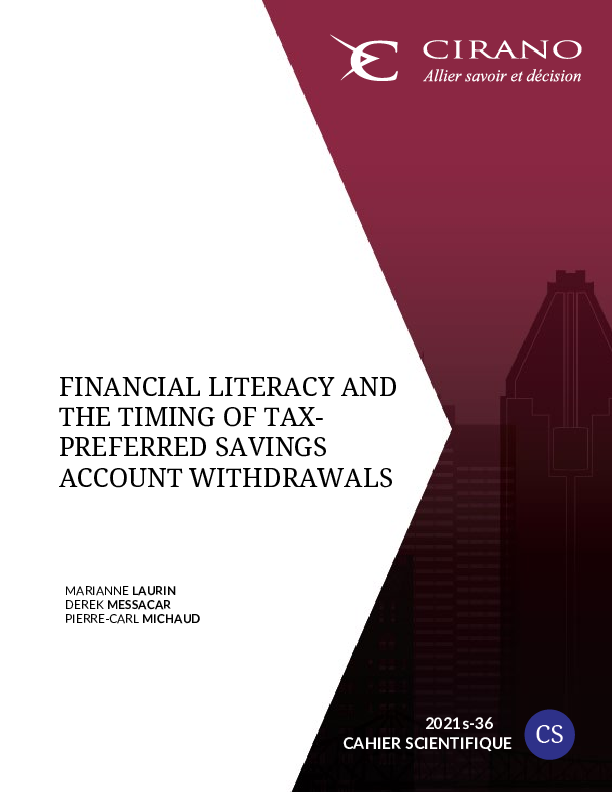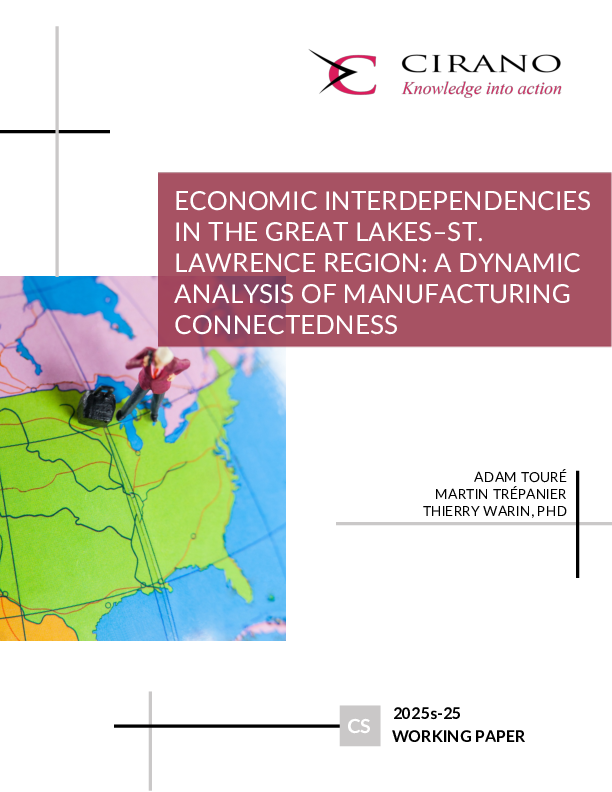Financial Literacy and the Timing of Tax-Preferred Savings Account Withdrawals
Tax deductions on contributions to registered savings vehicles are a common policy tool used by governments in many industrialized countries to encourage people to save for retirement.
However, these plans do not typically lock in funds, which means savers may also withdraw before retirement when their marginal tax rates are still high and forgo the tax benefit. In this paper, we investigate the extent to which pre-retirement savings withdrawals respond to changes in the net-of-tax benefit of withdrawing and whether such behavior depends on the saver’s financial literacy. To that end, we link respondents of a nationally representative financial capability survey from Canada to over 15 years of administrative tax data. Our
results show that the correlation between savings withdrawals and the effective marginal tax rate is negative for those with higher financial literacy, but much weaker and sometimes statistically insignificant for those with lower financial literacy. The findings suggest that financial literacy is an important determinant of the extent to which tax-deductible savings plans are used efficiently.




